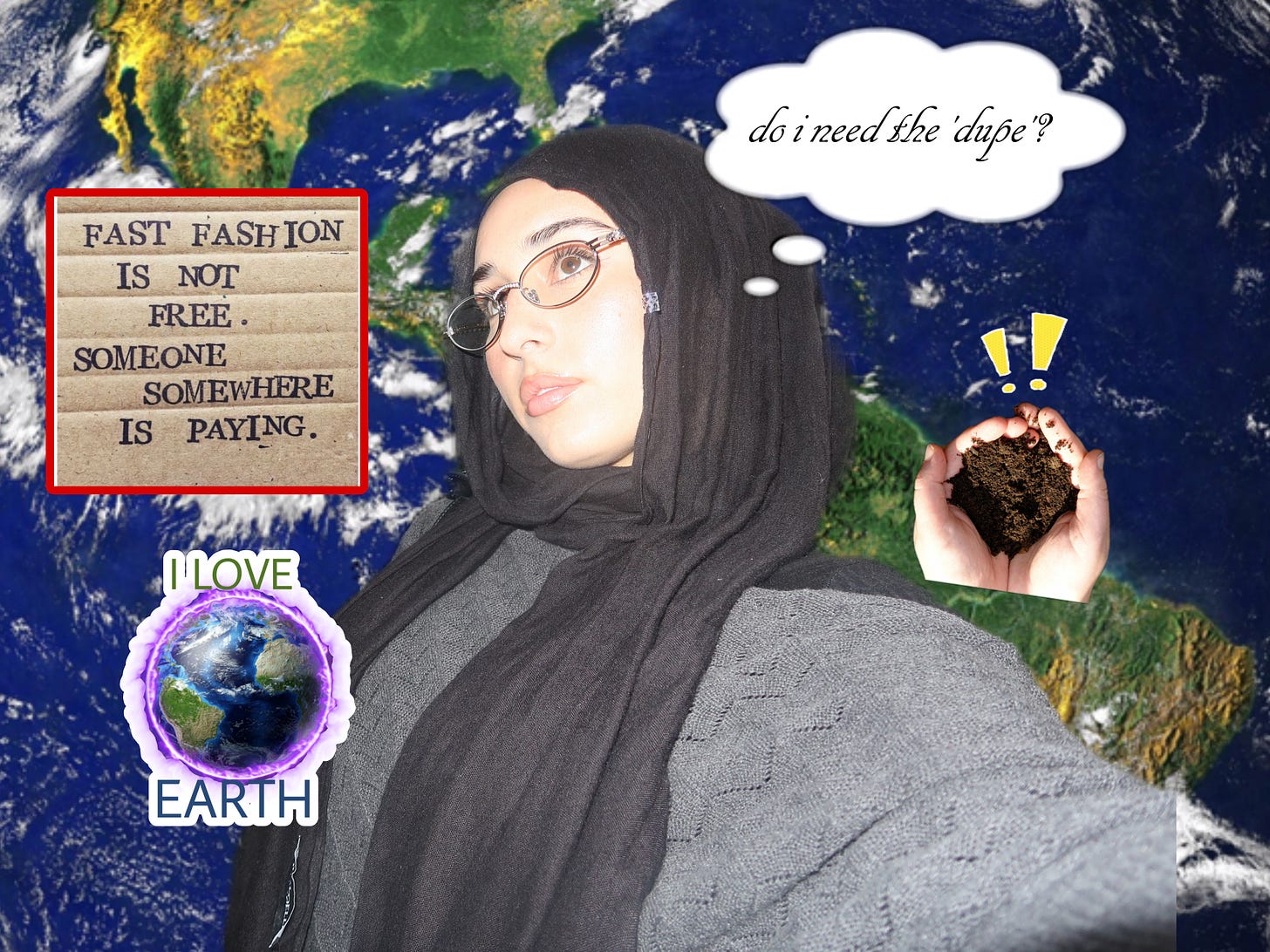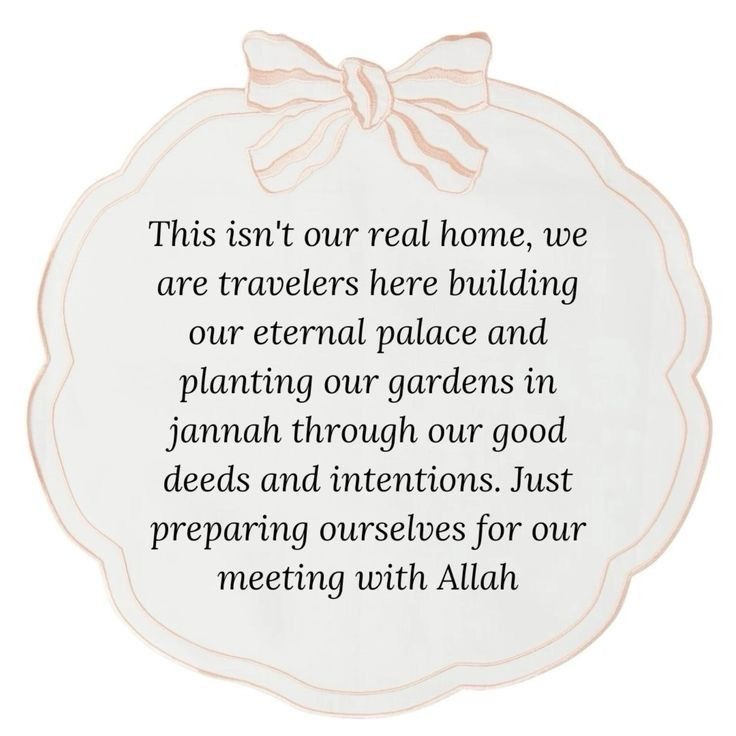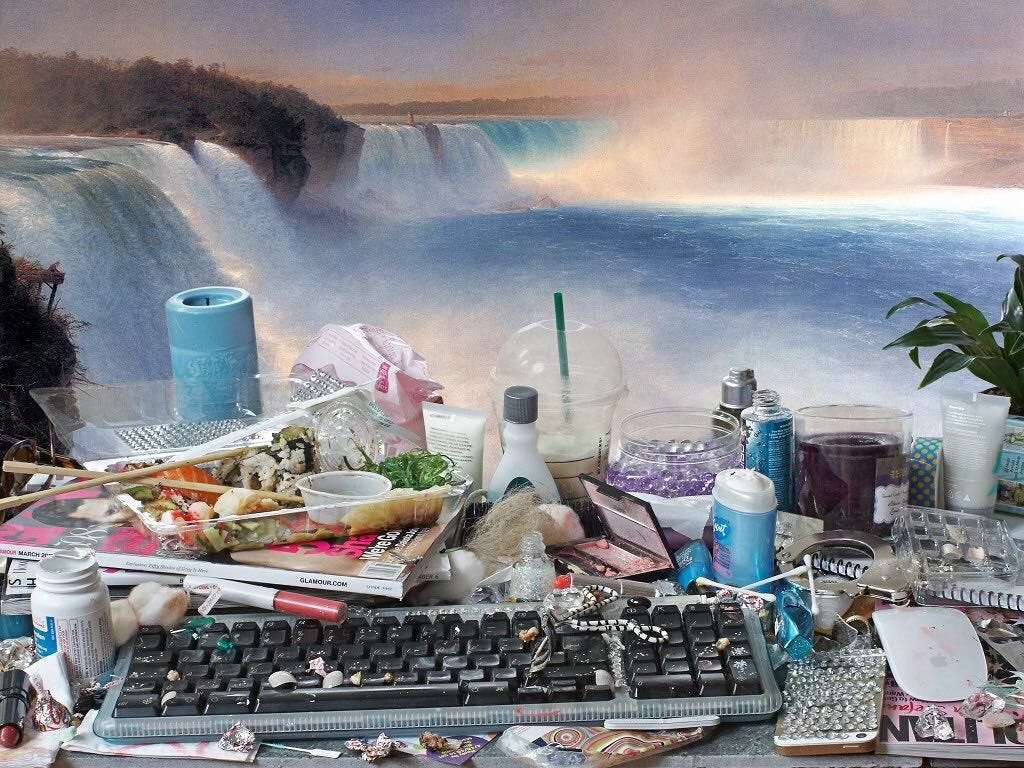We all know that slow and sustainable fashion is better for the planet, but if you're Muslim, have you considered that it is also deeply embedded in our faith? In 2023, I was invited to give a TED Talk where I explored this topic in detail (you can watch it here). The feedback I received afterward was surprising: many fashion-loving Muslim women, like myself, had not fully realised that we have a greater responsibility with our purchasing choices than we initially thought.
This may be an unpopular opinion, but working in fashion, especially when discussing it on an online platform, comes with an immense responsibility to influence ethically. Ultimately, your platform is a reflection of your values. Although it is a curated version of yourself, it still represents your loves, dislikes, and, as a Muslim woman, what you advocate for. To blindly influence and promote fashion sites like PLT, Shein, Zara, etc., which have a public record of exploiting workers, contributing to landfills, and famously ripping off other labels, including small businesses, is a decision that should not be taken lightly.
Consider this: if you have any number of followers and even one or a hundred people decide to purchase the same garment, do you want to carry that weight on your conscience? This may seem dramatic to some, but to love fashion is to embrace all aspects of it. You cannot work in the industry without understanding the supply chain and the less glamorous realities it involves.
If you follow me, you might know that I thrift weekly, searching for everything from decor to clothes. Although I was raised to visit op-shops from a young age and now thrift more for nostalgia than necessity, it’s a great way to balance your love for fashion while slowing down your buying decisions.
Now, I’m not a religious scholar by any means, but it’s clear that Islam suggests living lightly and acquiring only what we need, as we are on this earth as travelers. In a world dominated by fast fashion and micro-trends, buying thrifted pieces can be seen as an act of rebellion.
This conversation is rarely discussed in places of worship or on online platforms. However, I suspect that platforms led by men mostly may not view this as an urgent issue or may consider it more of a "women's problem," even though everyone is accountable. I’ve never heard a lecture at the mosque on ethical fashion or sustainability, despite their importance. Perhaps I’m writing this as a reminder and to encourage our community to reflect on these issues.
What role do you play in this? If The Prophet (peace be upon him) said, "The world is beautiful and verdant, and verily God, the Exalted, has made you His stewards in it, and He sees how you acquit yourselves,” and its written “The servants of the Lord of Mercy are those who walk gently upon the earth…” (Quran 25:63), does this not also apply to our purchasing decisions, which ultimately impact the planet?
We know that Islam emphasises the negative aspects of excessive materialism and greed and warns against capitalist ideals that often prioritise consumerism and the accumulation of wealth. Islam also stresses the importance of supporting the poor, marginalized, and disadvantaged, challenging capitalist practices and economic/classist disadvantages. Both Islam and anti-capitalist ideologies critique systems that exploit individuals for profit, and the fashion industry is a prime example of this.
Islam’s ethical guidelines aim to protect workers' rights and ensure fair treatment, opposing labor exploitation and inequality. If we are told, "The world is green and beautiful, and Allah has appointed you His stewards over it," then why should we ignore an industry that produces 100 billion garments each year, with 92 million tonnes ending up in landfills? This industry has contributed to a 50% increase in global emissions by 2030 and is responsible for 20% of global wastewater. Is this not an issue that deserves our attention?
Although I have been passionate about this topic for a while, the recent discourse on TikTok—particularly around slow fashion and a small business within our own community—has inspired me once again to bring this issue to the forefront of my platform. VELA Scarves, a small Muslim-owned business run by two sisters, has been trailblazing with modal and woven hijabs for as long as I can remember. They have produced many iconic designs, and at the core, VELA is a sustainable and slow fashion company.
You can read all about their business ethics on their website, but to summarize a few key points: their products are made ethically, hand-dyed, and they use recycled packaging. They also upcycle old fabric scraps into scrunchies. Compared to other businesses on the market, VELA is making significant strides in the right direction.
VELA’s commitment to slow fashion means they produce in small batches, focusing on quality control and avoiding overproduction, which prevents unsold items from ending up in landfills. From a fashion perspective, they aren’t chasing micro-trends or promoting fast, mindless purchases. Instead, they stay attuned to customer demands by observing what sells and what doesn’t.
To get to the point, the 'watercolor' hijab is trending on TikTok, with Muslim influencers and everyday consumers eager to get their hands on it. While I agree that it’s a beautiful hijab, VELA is being critiqued for its slow restocks, fast sell-outs, and even the pricing of their products. I’ve also seen content on my FYP where fellow Muslim women are turning to Shein and Alibaba to find ‘dupes’ for VELA scarves, expressing frustration over the wait and the price.
While some may say, "each to their own," I am confident in my stance on this issue. Resorting to fashion sites that support companies ripping off a Muslim-owned business's work and producing items unethically so you can get what’s trending ASAP is fundamentally wrong and deserves reflection. Unlike million-dollar empires, Muslim-owned businesses are often smaller and more personal, and they notice when their designs are copied. These are hardworking creatives from our own community. Is it truly so necessary that you can’t hold off on the trend or patiently wait for a restock?
I’m not here to discuss the price point of a product, as I don’t have detailed knowledge about what’s fair. However, we have become so accustomed to cheap fashion that we often view anything beyond $5 or $10 as unfair. What I ask is whether you have considered how the price of a product, especially from a small business, accounts for paying wages both in-house and overseas, maintaining sustainability efforts, and producing high-quality garments.
Ultimately, my question is: Is it better to purchase an unethical dupe because you’re eager to follow a trend quickly, or is it more worthwhile to avoid participating in the trend altogether?
If you’re reading this and thinking, "Nawal, you sound biased and can afford to shop at VELA, so you wouldn’t understand," you’re valid. Yes, I am biased and will always support Muslim-owned small businesses, especially those making an effort to improve in a community that often overlooks sustainability. Many other Muslim-owned businesses at lower price points may not have sustainability efforts, but VELA does, and that matters to me.
Although I can afford a VELA hijab, I have consciously slowed down my fashion buying decisions. I prefer not to partake in a trend until after it has passed, allowing me to be certain that I truly like it. How many times have you quickly snatched up a micro-trend, only to discard it in the back of your wardrobe a month later? (I’m guilty of this with cow print pants in 2019.)
Ultimately, this isn’t a critique of anyone, nor is it meant to stir up drama. Instead, I want this to serve as a reminder that we all have a responsibility and that our buying decisions have consequences. Nothing is "not that deep" when, as Muslims, we are instructed to protect our planet and, most importantly, to lead by example and support one another.
On a lighter note, if you happen to have the leopard print VELA in your possession, feel free to send it my way—no pressure! xx
Inshallah, we can have a happier, more connected community and create space for these important conversations. When the planet is happy, ultimately, so are we.








This was so so on point! I always think about how we, as communities following Islam, often neglect our earth. Allah commanded that we take care of everything in this world, and yet we are so sucked into the capitalism, we don't step back enough to reflect on how much this mass produced, overconsumption is impacting A. our earth and B. real life people who have to slave away to mass produce?? Not to mention the physical toxicity of fast fashion (that's a whole other story) but this needs to be talked about more thank you for sharing <3
We really need more people talking about this - I'm so tired of people, especially Muslims, sweeping issues like sustainability and ethics under the rug! Practising minfdul consumption and slow fashion is a form of worship and shouldn't be seen as some woo woo western liberal ideal